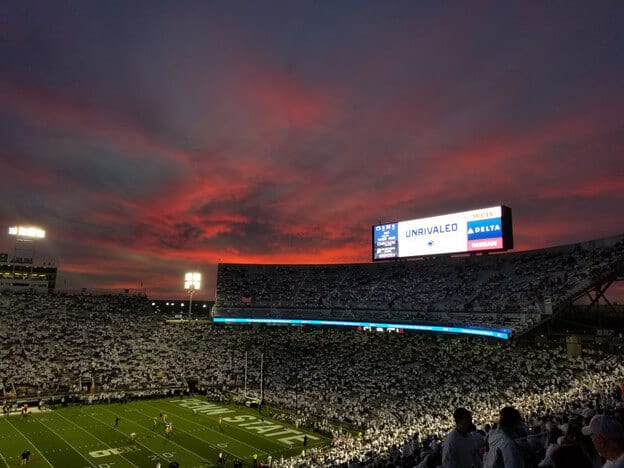Although the terms are often used interchangeably (especially in the US), there are several differences between college vs. university. While both are higher education institutions that may grant bachelor’s and graduate degrees, there are plenty of things to know about these qualifications.
This article highlights the key differences between a college and a university. Keep reading for more information!
College vs. University: What’s the Difference?
The main difference between college and university is that, while both offer post-secondary education, a university must grant both undergraduate and graduate degrees. Before they can add “university” to their name, academic institutions must also be accredited and meet all of these criteria for at least five consecutive years.
1. Programs and Qualifications Offered
Colleges may grant undergraduate degrees, job-based training, or both. The types of qualifications that can be earned depend on the type of college (e.g., community, technical, liberal arts).
Colleges either have four-year undergraduate degree programs and/or two-year associate degrees. Note: Community colleges typically offer two-year degrees.
Universities almost always offer four-year undergraduate degrees, as well as graduate qualifications (like master’s and Ph.D. programs).
Fun fact: Some institutions are technically classified as universities but use the title of college!
2. Specializations

Some colleges focus on a particular profession or area of study, like military, engineering, and business. However, not all colleges are specialized. For example, liberal arts colleges typically cover a wide range of fields and various disciplines in the humanities and sciences.
Universities must have separate graduate programs from undergraduate studies, as well as dedicated staff and pathways to advanced degrees in at least three academic disciplines. That said, the majority of universities go far beyond that, offering undergraduate, master’s, and doctoral degrees in a large number of fields.
3. Graduate Programs
While some colleges grant graduate degrees, there are no requirements to do so. These higher-education institutions may issue graduate degrees, four-year undergraduate degrees, two-year associate degrees, technical qualifications, or a combination of these.
On the other hand, all universities must offer graduate programs and:
- Have separate graduate studies and undergraduate programs
- Employ staff with the primary responsibility of administering graduate studies programs
- Offer programs that lead to advanced degrees across at least three academic fields
4. Accreditation
Another key difference between university and college is that a track record of accreditation is mandatory for universities. Many colleges are accredited, but they don’t necessarily have to be accredited to operate.
To be officially classified as a university, the institution must have held official accreditation from an independent body for at least five years.
5. Cohort and Class Size
Compared to the average university, many colleges have smaller class sizes and fewer overall students.
Universities can be extremely large institutions with many faculty to support a huge student body. The largest university in the US is Texas A&M University, with a cohort of 72,530 in 2022. That said, smaller universities (such as Marymount California University) can have fewer than 600 students.
6. Research
While many colleges produce research, the majority focus on teaching students.
At universities, research makes up a more substantial part of student work. This supports the learning of graduate students and allows them to collaborate with faculty (often producing ground-breaking research in their field).
Different Types of Colleges

It’s not only important to understand what the difference between college and university is, but also that there are different types of colleges.
The main types of colleges in the US are:
Liberal Arts College
Because of the name, some believe that liberal arts colleges only offer humanities programs. However, most of these 4-year colleges actually have diverse programs based on the humanities and sciences.
To provide a more well-rounded education, many liberal arts colleges (like Swarthmore College and Williams College) mandate courses in humanities and science disciplines.
Technical and Vocational College
Technical and vocational colleges are focused on providing training specific to certain trades and professions (e.g., auto mechanics, welding, and electrical work).
Rather than providing general education, these two-year courses typically focus on specialized skills relevant to that trade. Though similar, there are a few differences between technical and vocational colleges. For example, the former usually grants associate degrees while the latter typically provides certificates to their graduates.
Community College
Sometimes also known as junior colleges, community colleges typically focus on two-year associate degrees and certificates across various fields. They often offer a more personal style of education, with smaller class sizes in a relaxed learning environment.
Overall, community colleges are also much more affordable than most universities, costing an average of just $3770 in annual tuition.
Colleges Within Universities
Many large universities are divided into smaller schools called colleges. Each focuses on a particular academic field, such as medicine, law, business, or engineering. At the same time, these colleges are a part of the overall structure of the university.
This is also common in the UK. For example, the University of Oxford has a system of academic communities known as colleges. As an Oxford student, you are a member of one of their more than 30 colleges, with their own libraries, activities, and accommodation.
The Advantages of Choosing a College
Better Attention
Compared to universities, many colleges boast smaller class sizes. Although this is not a firm rule, smaller class sizes mean you’ll likely get to know your teachers better, have more opportunities to ask questions, and achieve a more personal learning experience.
Close-Knit Student Cohort
Smaller class sizes can help you build strong relationships with your peers. As colleges are often specialized, this means students typically have similar passions and goals, helping them develop a close-knit environment.
Act as a Stepping Stone
Many students use college as a pathway to university, especially if they haven’t been directly accepted into the university of their choice (or can’t afford the tuition). Community colleges are particularly known for offering a more affordable and accessible education alternative.
After spending time at college, many students transfer to a university by applying their community college associate diplomas toward four-year degrees.
Better Access to Resources and Opportunities
It may be easier to access resources and research opportunities at a smaller college.
The Advantages of Choosing a University

Increased Options
While colleges typically offer a narrower range of programs, universities offer degrees at the undergraduate, master’s, and Ph.D. levels. This allows students to continue their studies to a more advanced degree – without needing to switch institutions.
The wider scope of universities means that they may offer accelerated programs and combined degrees. Many universities offer combined bachelor’s and master’s without a bachelor’s degree.
Better Research Opportunities
Universities generally have more developed research programs than colleges. This translates into more opportunities for collaboration with cutting-edge research, research facilities, and renowned academics.
As universities are more likely to offer Ph.D. programs, you’ll have a better chance of progressing from a master’s to a Ph.D. program at the same institution.
Related: The easiest Ph.D. in the US
More Diverse Student Cohort
While large student cohorts at universities may have drawbacks, they also have many advantages. Larger student populations tend to be more diverse, providing access to networking opportunities and classmates from various backgrounds.
More On-Campus Activities
Larger universities generally offer a range of on-campus clubs and activities that you may not find at smaller colleges. This not only offers a richer, more well-rounded experience, but it can also help you build your post-graduation resume. You may also find that larger universities have a wider network of connections across the industry, connecting you with more potential employers.
Top-Notch Faculty
Leading universities attract some of the best faculty in their respective fields. By choosing a well-regarded university, you may study under renowned professors who deliver high educational standards or even collaborate with leading researchers.
Related: The easiest Master’s degrees in the US
Which Term Do US Students Use: University vs. College?
In the US, students might refer to any higher education institution as a “college,” even if it’s technically a university. This is particularly confusing for international students, as “college” might refer to a private elementary or high school.
Key Takeaways
Technically speaking, the main difference between college vs. university is the specific graduate program requirements that institutions must meet. University isn’t necessarily better than college – every institution has its pros and cons. You can apply to both types of schools, but be sure that they suit your needs and learning style.
Decided on grad school but are struggling to choose a program? Our guide helps you choose whether full-time or part-time grad school is right for you!
Related:
- Best MacBook for College: Top 5 Picks
- Top 17 Best Part-Time Jobs for College Students
- Top 8 Best Backpacks for College
- 17 Best Chairs for Studying: Avoid Neck and Back Pain
- How to Get a Master’s Without a Bachelor’s: The Complete Guide
- Top 20 Best iPad Apps for Students
Lisa is a full-time writer specializing in career advice, further education, and personal development. She works from all over the world, and when not writing you'll find her hiking, practicing yoga, or enjoying a glass of Malbec.











